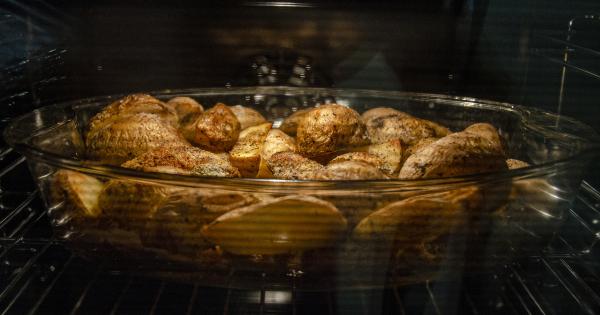Diarrhea is a common gastrointestinal condition characterized by loose, watery stools that occur more frequently than usual. While there are numerous causes of diarrhea, one potential contributing factor is food.
Certain foods can trigger diarrhea in some individuals, leading to discomfort and inconvenience. In this article, we will explore the link between food and diarrhea, its potential causes, symptoms, treatment options, and tips for managing and preventing this uncomfortable condition.
The Link Between Food and Diarrhea
Food-related diarrhea refers to diarrhea that is directly caused or triggered by the consumption of certain foods. Diarrhea can be a result of various factors, including infections, medications, underlying health conditions, and allergies.
However, food-related diarrhea specifically stems from the ingestion of substances that irritate the digestive system or trigger an allergic reaction.
When certain foods are consumed, they can irritate the lining of the intestines or cause an increase in the amount of water in the stool, resulting in loose and frequent bowel movements.
Some individuals may be more susceptible to food-related diarrhea due to the presence of underlying digestive disorders or food sensitivities.
Common Causes of Food-Related Diarrhea
Food-related diarrhea can occur due to a variety of reasons. Here are some common causes:.
1. Food Allergies and Intolerances
Food allergies occur when the immune system reacts abnormally to certain proteins present in foods. This immune response can cause symptoms such as diarrhea, stomach cramps, nausea, and vomiting.
Common food allergens that may trigger diarrhea include peanuts, tree nuts, eggs, dairy products, shellfish, and soy.
Food intolerances, on the other hand, typically involve difficulty digesting specific types of foods or food components.
Lactose intolerance, for example, occurs when the body lacks the enzyme necessary to properly digest lactose, a sugar found in dairy products. Consuming lactose-containing foods can lead to symptoms such as diarrhea, bloating, and abdominal pain.
2. Spicy and Irritating Foods
Certain foods, particularly those that are spicy or high in irritants, can cause diarrhea in some individuals. Spices like red chili pepper, black pepper, and hot sauce may irritate the digestive system and lead to loose stools.
Similarly, highly acidic or greasy foods can also trigger diarrhea by irritating the lining of the intestines.
3. High-Fiber Foods
While fiber is an essential component of a healthy diet, consuming excessive amounts of high-fiber foods can result in diarrhea. Fiber adds bulk to the stool and promotes regular bowel movements.
However, consuming too much fiber too quickly can overwhelm the digestive system, leading to loose stools.
4. Contaminated Foods
Bacterial, viral, or parasitic infections acquired through contaminated foods can also cause diarrhea. Certain bacteria, such as Salmonella, E.
coli, and Campylobacter, produce toxins that irritate the intestines and lead to diarrhea and other gastrointestinal symptoms. It is vital to practice proper food hygiene and thoroughly cook foods to reduce the risk of acquiring these infections.
5. Artificial Sweeteners
Artificial sweeteners, such as sorbitol or mannitol, commonly found in sugar-free products, can have a laxative effect and cause diarrhea when consumed in large amounts.
These sweeteners are poorly absorbed by the body and can draw water into the intestine, leading to loose stools and increased bowel movements.
Symptoms of Food-Related Diarrhea
The symptoms of food-related diarrhea may vary depending on the individual and the specific cause. However, common symptoms include:.
– Frequent, loose, and watery stools.
– Abdominal cramps and pain.
– Nausea and vomiting.
– Bloating and gas.
– Fever (if an infection is the cause).
– Dehydration (excessive fluid loss through diarrhea).
Treatment Options for Food-Related Diarrhea
The treatment for food-related diarrhea primarily focuses on addressing the underlying cause and alleviating symptoms. Here are some common treatment options:.
1. Dietary Modifications
Identifying and avoiding trigger foods is crucial in managing food-related diarrhea. Keeping a food diary and noting any symptoms that occur after consuming specific foods can help identify potential triggers.
Once identified, eliminating or reducing the consumption of these foods can significantly improve symptoms.
Additionally, consuming a bland diet consisting of easily digestible foods like bananas, rice, applesauce, and toast (BRAT diet) can help soothe the digestive system and reduce diarrhea.
Gradually reintroducing other foods can be done once symptoms subside.
2. Hydration
Diarrhea can lead to dehydration since excessive fluids are lost through loose stools. It is vital to stay hydrated by consuming plenty of water, clear broths, and electrolyte-rich fluids like oral rehydration solutions or sports drinks.
Avoiding caffeinated or alcoholic beverages is necessary as they can worsen dehydration.
3. Medications
Over-the-counter medications such as loperamide can be used to reduce the frequency of bowel movements and alleviate diarrhea.
However, it is important to consult a healthcare professional before initiating any medication, especially in cases of severe or prolonged diarrhea.
4. Probiotics
Probiotics are beneficial bacteria that can help restore the balance of gut flora and improve digestive health. They are available in supplement form or naturally found in certain foods like yogurt, kefir, and sauerkraut.
Incorporating probiotics into the diet may help alleviate diarrhea and support overall gut health.
Managing and Preventing Food-Related Diarrhea
While food-related diarrhea can be challenging to manage, there are steps you can take to help prevent its occurrence. Here are some tips:.
1. Practice Proper Food Hygiene
Ensure that all foods are properly handled, cooked, and stored to minimize the risk of bacterial contamination. Wash your hands frequently, separate raw and cooked foods, and cook meats, eggs, and seafood thoroughly to kill any potential pathogens.
2. Gradually Introduce New Foods
If you have a sensitive digestive system, gradually introducing new foods into your diet can help identify potential triggers and prevent diarrhea.
By introducing one new food at a time, you can monitor how your body reacts and make adjustments accordingly.
3. Moderation is Key
Consuming moderate portions of potentially triggering foods can help prevent diarrhea. Overindulgence in spicy, greasy, or high-fiber foods can overwhelm the digestive system, leading to loose stools.
Pay attention to your body’s response and consume these foods in moderation.
4. Seek Medical Advice
If you frequently experience food-related diarrhea or have persistent symptoms, it is essential to seek medical advice. A healthcare professional can help identify the underlying cause of your diarrhea and develop an appropriate management plan.
While food-related diarrhea can be uncomfortable and disruptive, understanding its causes and making necessary lifestyle adjustments can greatly improve your quality of life.
By identifying trigger foods, following a balanced diet, and practicing proper food hygiene, you can effectively manage and reduce the occurrence of food-related diarrhea.































